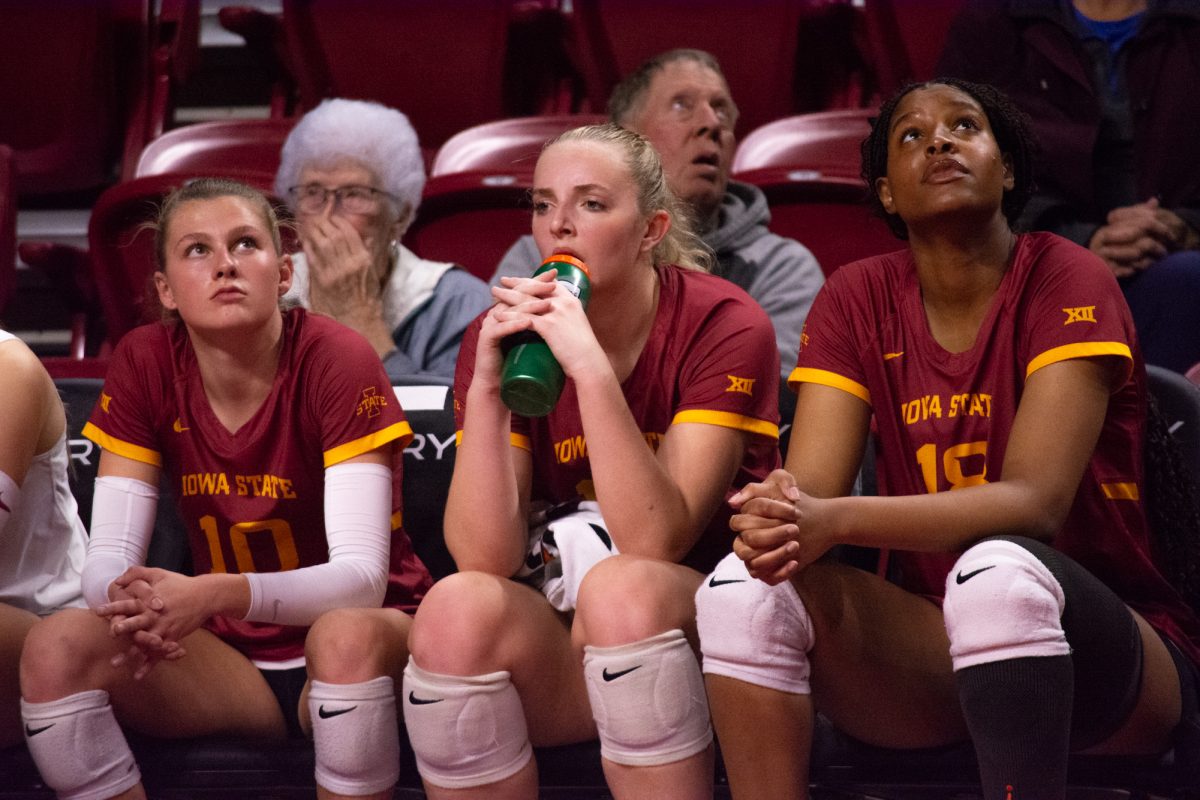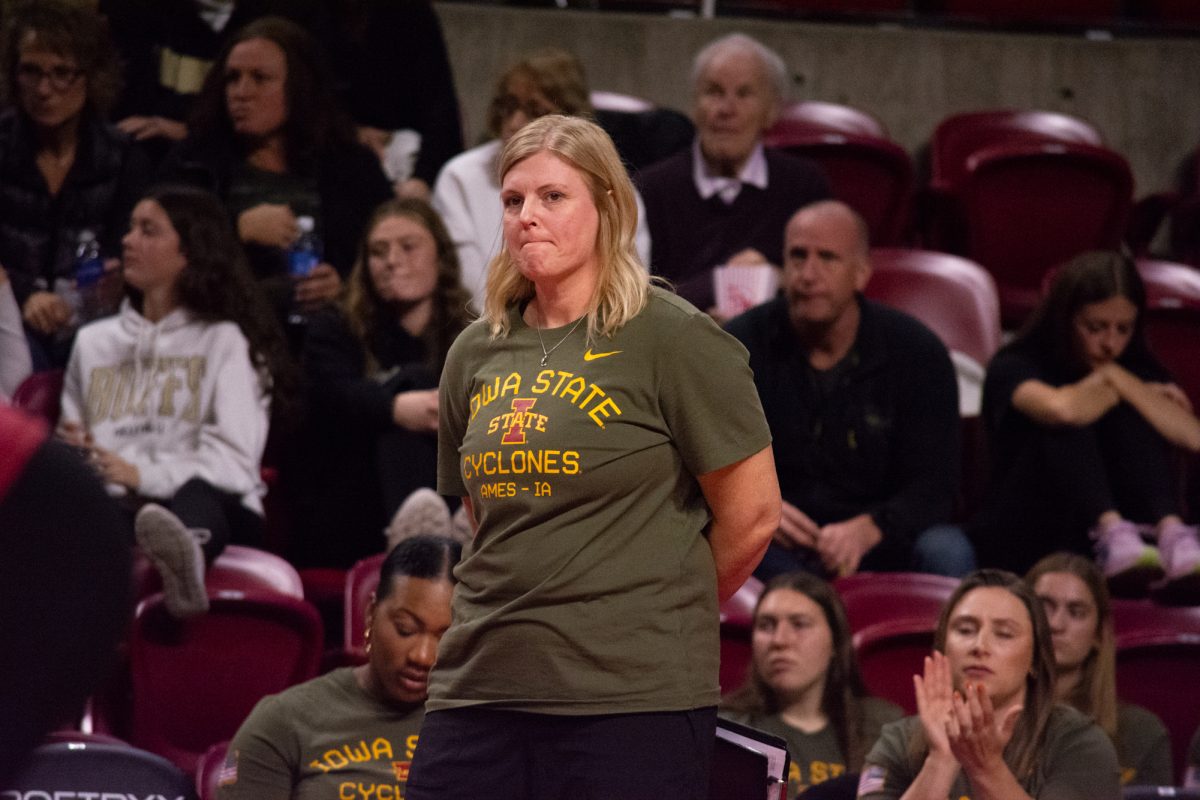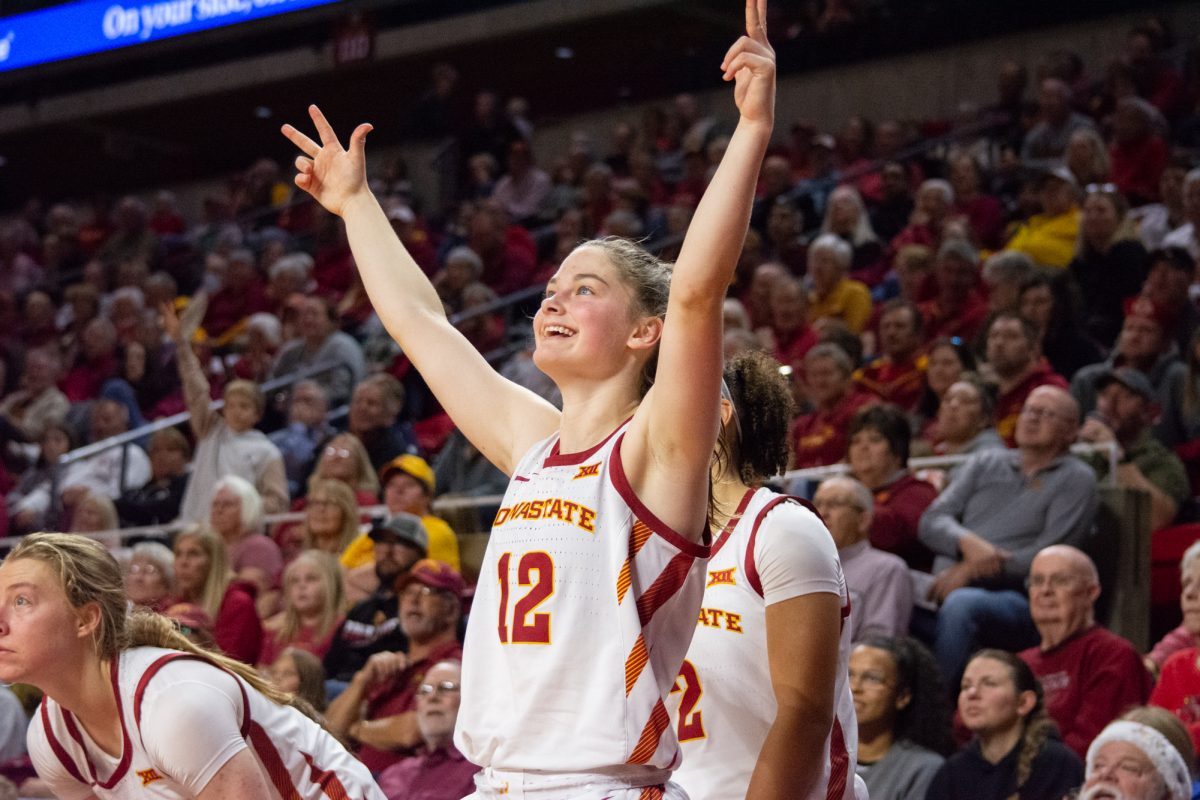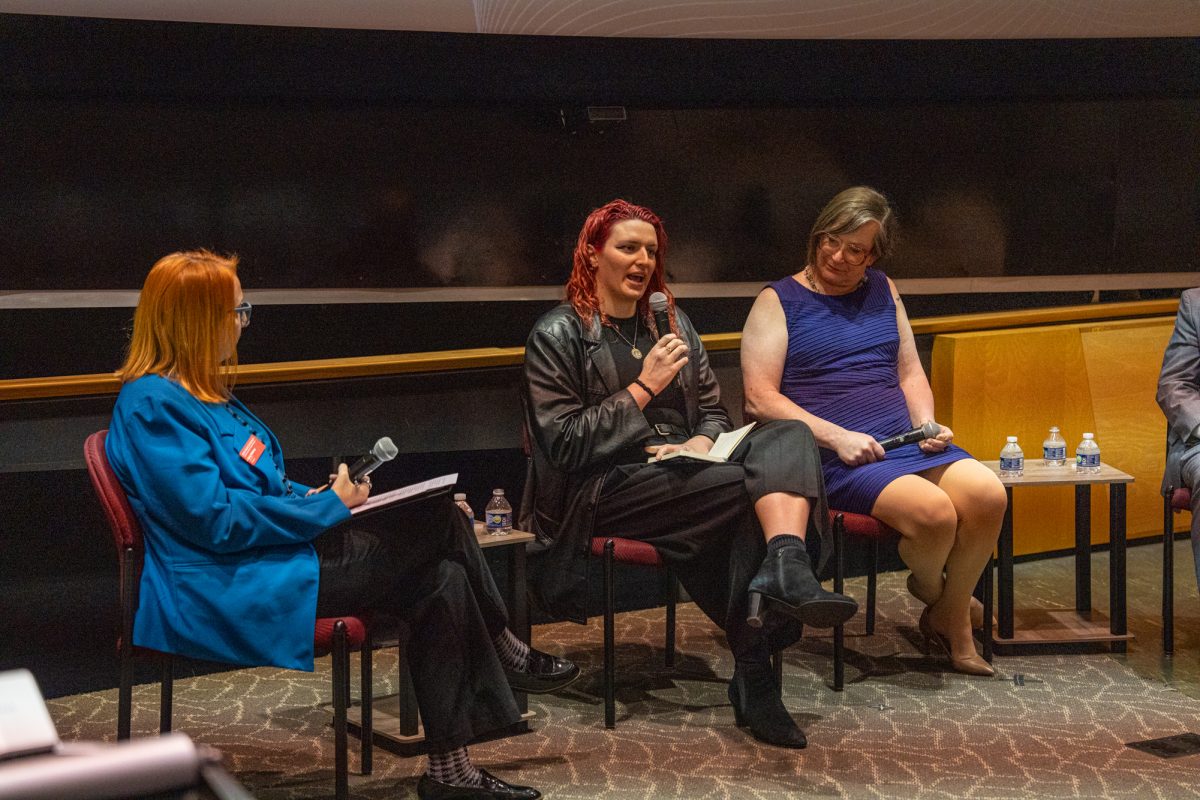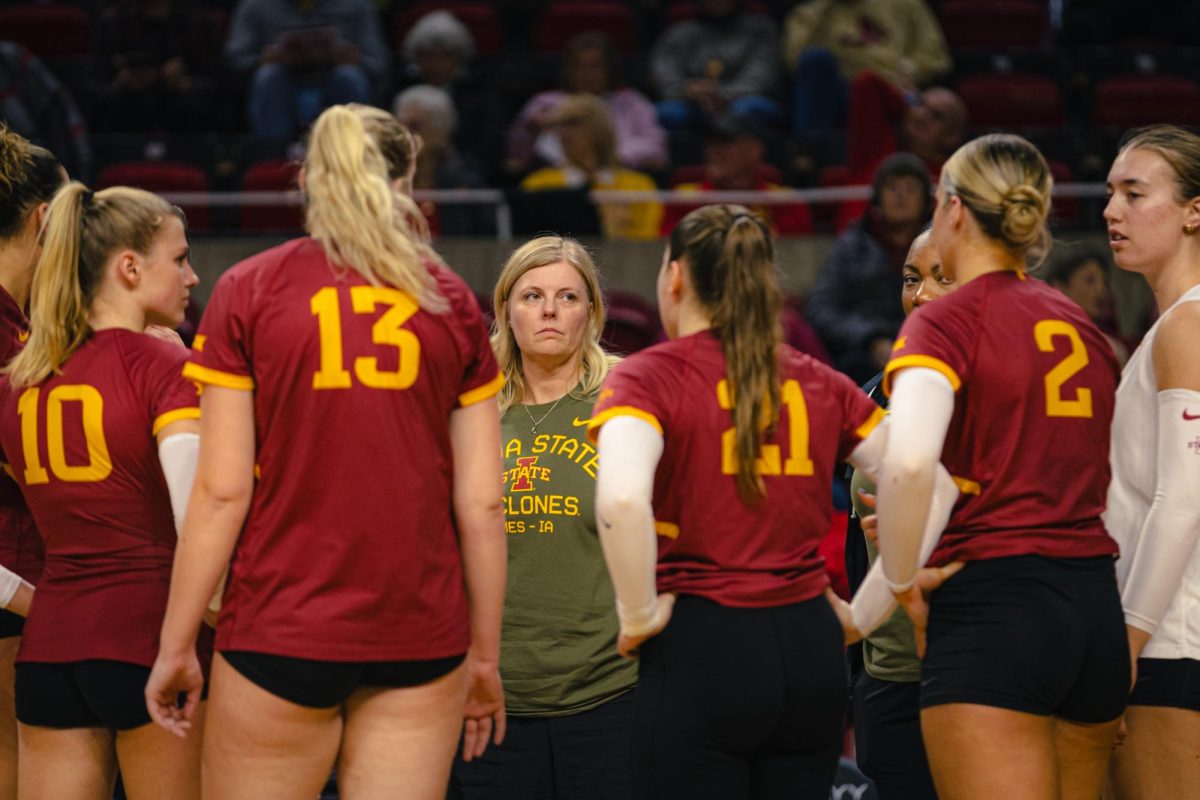Topel looks back at decade as dean
January 28, 1999
A muted painting of yellow corn is the first sight that greets guests as they enter the warm office in 128 Curtiss Hall. It seems appropriate since the office houses the dean of the College of Agriculture, David Topel.
Topel announced that he will be stepping down from his position as dean to return to teaching.
While his quiet demeanor makes him appear reserved, Topel’s strong commitment to agriculture and students at Iowa State eases open the floodgates, spilling the memories of his last 10 years as dean.
Topel’s responsibilities in his position as dean were many, but he concentrated on creating improvements for the students, as well as raising funds for the college.
“There is the opportunities for students to get a great education at our college,” Topel said. “That is the most important responsibility.”
When Topel accepted the position as dean in 1988, he took that responsibility seriously. Undergraduate enrollment had dropped during the Farm Crisis in the 1980s, but it has nearly doubled in Topel’s tenure as dean.
Topel pointed out another improvement in the college was changing the curriculum five years ago. Working with the faculty and students, he said improvements were made by creating course requirements to increase communication effectiveness, mandate ethics courses and encourage international experiences.
There are now 18 countries students are able to visit, Topel said, and new opportunities constantly are being created.
The college currently is working on obtaining a grant to defray the students’ cost of airfare to Australia.
Topel said these international experiences can teach students lessons they would not normally learn in Iowa.
“Students learn not only the technical side of agriculture, but the social side of it,” he said.
Putting a new foundation under the research program was yet another accomplishment Topel has performed in his 10-plus years. He said there are four research areas in the foundation.
These critical areas are biotechnology, sustainable agriculture, economic policy and value-added crops.
State and private funding over the years already have shown their value. Topel said the results of the funding for these programs can be seen in newer campus structures, such as the Molecular Biology Building and the addition to Kildee Hall.
Topel attributes the success of Iowa State’s College of Agriculture to being the only agriculture school in Iowa.
“There’s not a lot of duplication,” he said regarding state projects and proposals.
However, Topel said the most difficult part of his job is “always … getting enough money.”
The college surpassed its goal of raising $60 million through the private giving foundation in five years; it was accomplished in only three, Topel said.
“Obtaining adequate funding is a challenge for people in this position at the college level,” Topel said.
A “good example of the sincerity of people in Iowa,” Topel said, is the $34 million anonymous gift that the agronomy department is expected to receive next year.
The commitment of another family is extending Topel’s work at ISU. Marion Eugene Ensminger and his wife Audrey helped to establish Topel’s future position, an Ensminger Professorship.
Topel will be coordinating the Ensminger program, which is a continuation of Eugene Ensminger’s work — advancing animal science in countries throughout the world.
The work Topel said he will be involved in includes teaching and overseeing the transport of Ensminger’s materials (more than 20 books written by Ensminger and artwork commissioned for these books) to Iowa from California.
Students can expect new curriculum and classes to be generated from this program, Topel said. There already is a commitment to create a school in Cuba and in the Ukraine, and more international opportunities are likely to surface, he said.
After looking over his term and all the accomplishments he has made as dean of the College of Agriculture, Topel said with a smile, “It’s a very good job.”


